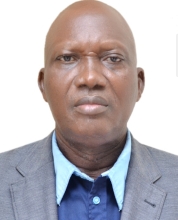
HEALTH TALK: Disability and mental health in Nigeria: Promoting awareness in supporting people living with disabilities
By Suleiman Tajudeen
CITIZENS COMPASS–Disability is a condition of the body or mind that makes it difficult for the person with the condition to do certain activities. It is a form of impairment or activity limitation that restricts the sufferer from interacting with the world around them.
This syndrome inflicts something called participation restrictions on the sufferers.
The popular opinion that there is ability in every disability has come to stay, hence the need for the society to encourage people with disability to exhibit their talents and God-given ability.
Ability as the word implies, is the resources to perform well at something, while disability is the limits or challenges a person faces.
According to World Health Organisation (WHO), disability has three dimensions:
1. Impairment in person’s body structure or function, or mental functioning; examples of impairment includes loss of a limb, loss of vision or memory loss.
2. Activity limitation; such as difficulty seeing, hearing, walking or problem- solving.
3. Participation restrictions in normal daily activities, such as working, engaging in social and recreational, and obtaining health care and preventive services.
Common mental issues experienced by people living with disabilities:
1. Stress and anxiety.
2. Depression.
3. Post-traumatic stress disorder.
4. Identity and anger issues.
5. Relationship difficulties.
Related health conditions experienced by people living with disabilities as postulated by CDC’s National Centre on Birth Defects and Developmental Disabilities on certain disability-related health conditions are:
• Attention-Deficit Hyperactivity Disorder (ADHD).
• Autism.
• Cerebral palsy.
• Deep Vein Thrombosis (DVT) (i.e Blood clot disorder).
• Duchenne/Becker muscular Dystrophy.
• Fetal Alcohol Spectrum Disorder (FASD).
• Fragile X syndrome.
• Hearing loss.
• Hemophilia.
• Intellectual disability.
• Kernicterus.
• Sickle cell disease.
• Spinal Bifida.
• Thalassemia.
• Tourette syndrome.
• Traumatic brain injury.
• Vision impairments.
• Von willebrand diseases
Other disabilities include:
• Mental health conditions.
• Acquired brain injury.
• Autism spectrum disorder.
• Physical disability.
• Autistic disorder.
• Down syndrome.
• Invisible disabilities.
• Locomotor disability (i.e disability of the bones or joints leading to restrictions of movement).
CAUSES OF DISABILITY
• Hereditary
• Illness like cancer, heart attack or
Join us next week for the concluding part of this topic.
Dr Sulaiman Tajudeen is Head, Clinical Psychology, Lagos University Teaching Hospital, Idi-araba, Lagos State.





